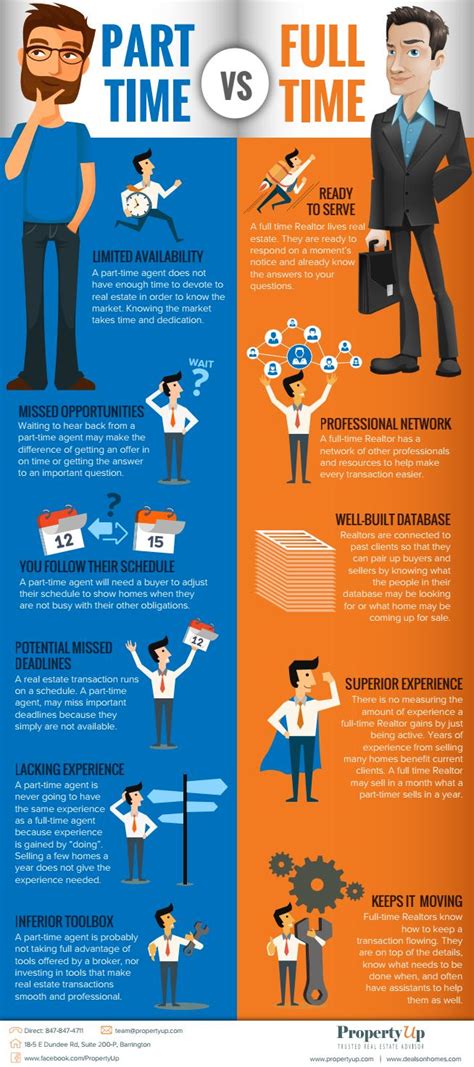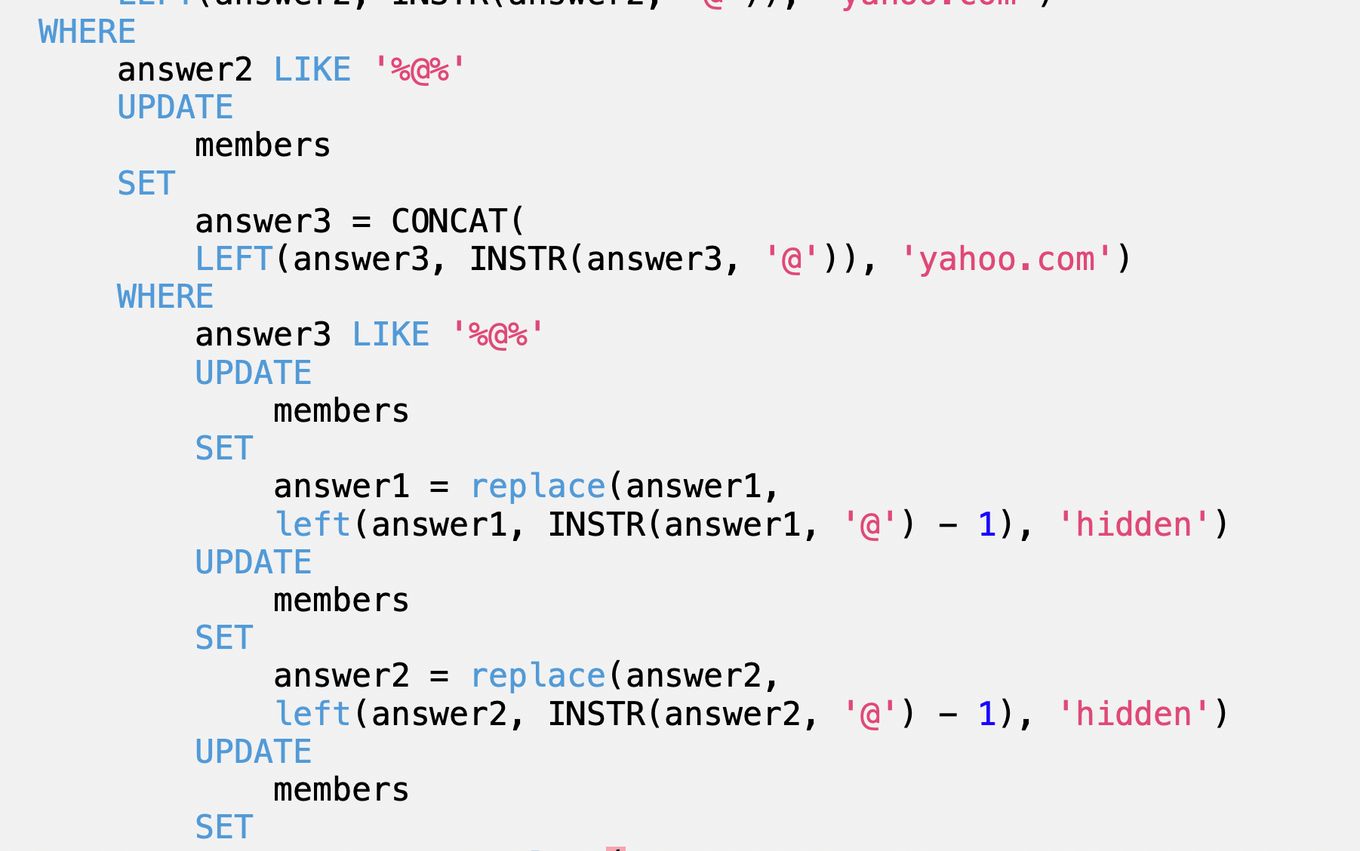Navigating the Full-Time vs. Part-Time Dilemma

The decision between pursuing a full-time career or opting for part-time work is a common dilemma faced by individuals, particularly when considering work-life balance and career growth. In today's dynamic job market, understanding the implications and opportunities of each choice is crucial. This article aims to provide an in-depth analysis, exploring the advantages, challenges, and potential paths that both full-time and part-time employment avenues offer.
The Full-Time Career Path: Stability and Growth Opportunities

Embarking on a full-time career often signifies a dedicated and focused approach to professional life. This path is characterized by consistent work hours, typically spanning 40 or more hours per week, and offers a range of benefits and growth prospects.
Advantages of Full-Time Employment
- Financial Stability: Full-time jobs generally provide a steady income, often with benefits such as healthcare, retirement plans, and paid time off. This financial security can be crucial for long-term planning and stability.
- Career Advancement: Full-time positions offer ample opportunities for skill development and career progression. Employees can take on diverse projects, gain exposure to different aspects of their industry, and build a comprehensive skill set.
- Job Security: In many cases, full-time employees enjoy greater job security compared to part-time workers. This sense of stability can be comforting, especially in uncertain economic times.
- Team Collaboration: Working full-time fosters strong team dynamics and camaraderie. Employees can develop deep relationships with colleagues, which can enhance productivity and job satisfaction.
Challenges and Considerations
While full-time employment has its perks, it's essential to acknowledge the potential challenges.
- Work-Life Balance: The demanding nature of full-time jobs can sometimes lead to a struggle to balance work and personal life. Employees must actively manage their time and prioritize self-care.
- Burnout Risk: Long work hours and high-pressure environments can increase the risk of burnout. Employers and employees alike must prioritize mental health and well-being.
- Limited Flexibility: Full-time jobs often have fixed schedules, which may not accommodate personal commitments or preferred work hours. This can be a challenge for those with caregiving responsibilities or other priorities.
The Part-Time Option: Flexibility and Lifestyle Choices

Part-time work offers a unique alternative to traditional full-time careers, providing individuals with greater flexibility and the ability to tailor their work hours to suit their lifestyle and personal commitments.
Advantages of Part-Time Work
- Work-Life Balance: One of the primary benefits of part-time work is the flexibility it affords. Employees can structure their work hours to align with personal commitments, such as childcare, eldercare, or pursuing personal interests and hobbies.
- Reduced Stress: With fewer work hours, part-time employees often experience lower stress levels. This can lead to improved overall well-being and a healthier work-life integration.
- Time for Personal Growth: Part-time work leaves room for individuals to explore other passions, pursue further education, or start side businesses. This flexibility can be instrumental in personal and professional development.
- Job Sharing Opportunities: Part-time positions often allow for job sharing arrangements, where two or more employees split a full-time role. This can be beneficial for both employers and employees, fostering collaboration and skill sharing.
Challenges and Considerations
Despite the advantages, part-time work also presents certain challenges and considerations.
- Limited Career Advancement: Part-time roles may offer fewer opportunities for career growth and skill development. Employees might find it harder to take on diverse projects or gain exposure to all aspects of their industry.
- Financial Stability: Lower work hours often translate to lower earnings and potentially fewer benefits. Part-time employees may need to carefully manage their finances and consider alternative income streams.
- Perception and Bias: In some industries, part-time work can be perceived as less committed or less valuable. Employees may need to advocate for their skills and contributions to overcome these biases.
Navigating the Decision: Personal Preferences and Industry Factors
The choice between full-time and part-time work is deeply personal and depends on an individual's priorities, lifestyle, and industry context.
Factors to Consider
- Career Goals: Reflect on your long-term career aspirations. If rapid advancement and diverse experiences are paramount, a full-time role may be more suitable. However, if you prioritize flexibility and a balanced lifestyle, part-time work could be the better fit.
- Industry Norms: Different industries have varying norms and expectations regarding full-time and part-time work. Research the common practices and opportunities in your field to make an informed decision.
- Financial Stability: Assess your financial needs and goals. While part-time work offers flexibility, it may not provide the same financial stability as full-time employment. Consider your short-term and long-term financial plans.
- Personal Commitments: Evaluate your personal life and the commitments you have outside of work. If you have caregiving responsibilities or other priorities, part-time work might offer the flexibility you need.
Exploring Hybrid Options
In recent years, the concept of hybrid work arrangements has gained traction. These arrangements blend full-time and part-time elements, offering a unique blend of stability and flexibility.
- Compressed Workweeks: Some companies offer compressed workweeks, where employees work longer hours on fewer days, resulting in a shorter workweek. For example, an employee might work four 10-hour days instead of five 8-hour days.
- Flexible Scheduling: Hybrid models can also involve flexible scheduling, where employees have some control over their work hours. This allows for better work-life integration and can be particularly beneficial for those with caregiving responsibilities.
- Job Sharing: Job sharing is another hybrid option, where two or more employees share a full-time position. This arrangement can provide the benefits of both full-time and part-time work, including job security and flexibility.
Performance Analysis and Future Implications
The performance of full-time and part-time employees can vary based on several factors, including industry, job role, and individual circumstances.
Performance Metrics
When evaluating performance, it's crucial to consider the specific metrics relevant to the job and industry. Here are some common performance indicators:
- Productivity: Output and efficiency are often key performance metrics. Part-time employees might need to demonstrate higher productivity to justify their role, while full-time employees might have more room for error.
- Quality of Work: The quality of work produced is another critical factor. Both full-time and part-time employees should aim for excellence, ensuring their work meets or exceeds expectations.
- Team Collaboration: Effective teamwork is essential for any successful organization. Part-time employees should strive to integrate seamlessly into teams, while full-time employees should foster an inclusive and collaborative environment.
Future Trends and Opportunities
The future of work is evolving, and both full-time and part-time roles will likely continue to play significant parts in the job market.
- Remote Work: The rise of remote work has opened new doors for both full-time and part-time employees. Remote work arrangements can offer increased flexibility and reduced commuting time, benefiting both work styles.
- Gig Economy: The gig economy, characterized by freelance and contract work, often involves part-time or project-based roles. This trend is expected to continue, providing opportunities for individuals seeking flexibility and diverse work experiences.
- Skill Development: As technology advances, the need for continuous skill development becomes increasingly important. Both full-time and part-time employees will need to stay updated with industry trends and skills to remain competitive.
Frequently Asked Questions

Can I transition from part-time to full-time work within the same company?
+
Absolutely! Many companies offer opportunities for part-time employees to transition to full-time roles. Demonstrating your skills, commitment, and value to the organization can increase your chances of a successful transition.
How can I ensure my part-time work is valued by my employer and colleagues?
+
To ensure your part-time work is valued, focus on delivering high-quality work consistently. Communicate openly with your employer and colleagues about your contributions and the value you bring to the team. Building strong relationships and advocating for your skills can help overcome any biases.
What are some strategies for managing finances as a part-time worker?
+
As a part-time worker, it’s essential to create a detailed budget and explore alternative income streams. Consider options like freelance work, gig economy opportunities, or starting a side business. Building an emergency fund can also provide financial security.
How can I make the most of a full-time role to enhance my career prospects?
+
In a full-time role, take advantage of professional development opportunities, such as training programs, workshops, and conferences. Seek diverse projects and take on additional responsibilities to broaden your skill set and stand out to employers.
What are some common misconceptions about part-time work?
+
One common misconception is that part-time work is less committed or less valuable. However, part-time employees can bring unique skills and perspectives to the table and often excel in their roles. Another misconception is that part-time work is only suitable for certain industries or job roles, which is not always the case.



